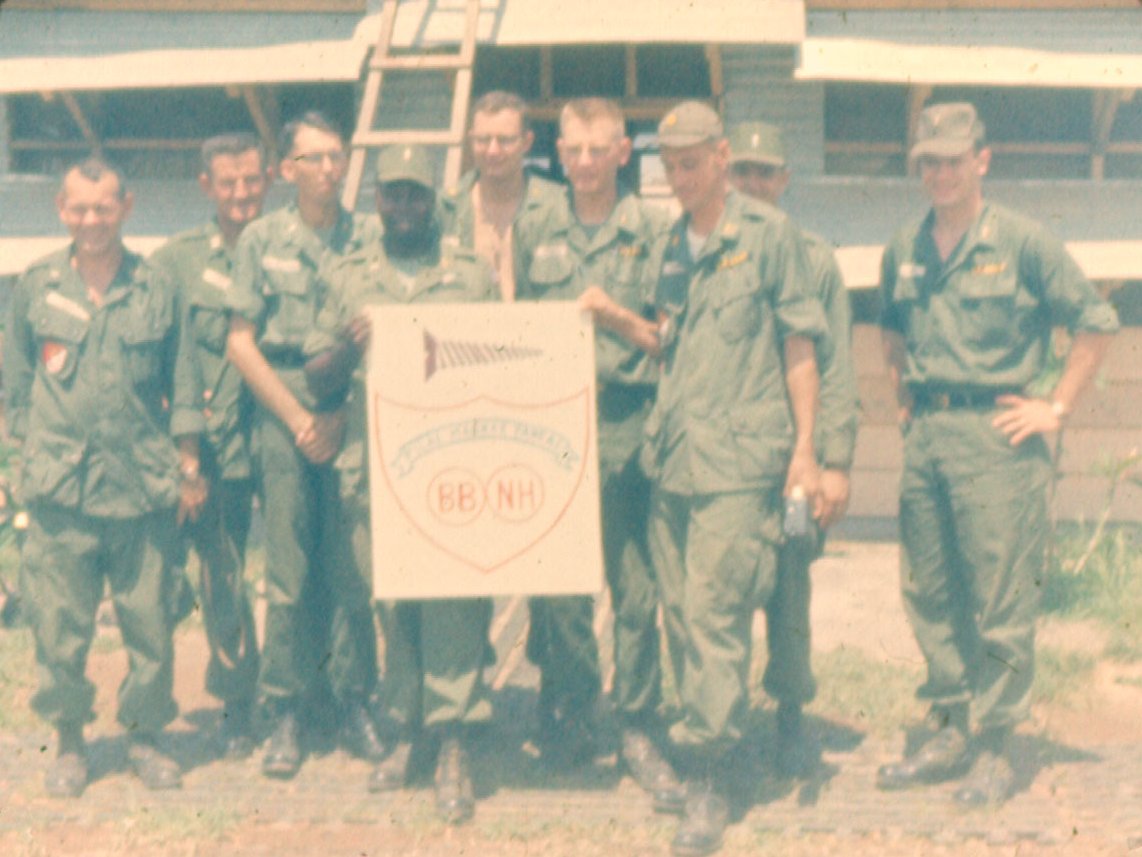© Constance J. Moore
Colonel, ANC (Retired), ANCA Historian
“Our first night in Vietnam we slept in tents ... on the ground – we didn’t have cots. Our first few showers were taken in a creek. Patient wards were also set up in tents on the bare ground. Eventually, concrete slabs were put down and the tents were set up on them. Slowly, the tents were replaced by Quonset Huts and those could be air conditioned,”1 Lieutenant (later Lieutenant Colonel) William Berry remembered.
The Vietnam War was the first war where male nurses served as ANC officers. A nurse’s gender normally did not affect the job given to a nurse; however, during this war several assignments were deemed gender-specific. In this pre-21st century war, all servicewomen were noncombatants who were not expected to do dangerous work. For example, Chief Nurse Lieutenant Colonel Rose Straley, observed, “[When] we had ... [a] requirement [to send a nurse to] an isolated area with a male clearing company, I felt that [the remoteness] of the unit and the austere living conditions [warranted] that we assign a male nurse.”2
Male nurse “muscle” was a valuable asset when hospitals were being established or on the move. (Lieutenant Colonel (Dr.) Gene Aaby, who was assigned as the Surgical Consultant in Vietnam, commented, “In some of our surgical hospitals, ... that were on the move – sometimes we had an all male nurse staff…. [The] work is heavy [with] ditches to dig and sandbags to fill. As soon as the 22nd [Evacuation Hospital] was in good working condition, we move[d] some female nurses there.”3
In 1966, the nursing service of the 3d Surgical Hospital was reorganized as an all-male unit in anticipation of increased enemy activity. Colonel Nickey McCasland remembered4:
 The plan was for the unit to be truly mobile, and move to wherever the fighting dictated. ... It moved from its tropical shell buildings at its home base in Bien Hoa and set up in its TO&E tentage, first at the civilian airport in Ban Me Thuot for a few days, then to the Army airstrip at Ban Me Thuot for several weeks. The unit did some MEDCAPs and took care of a few civilians and ARVN casualties. It was then moved back to its original location, and the male nurses sent back to their original units – the experiment having apparently proved that rapid air evacuation from combat areas trumps hospital unit mobility.
The plan was for the unit to be truly mobile, and move to wherever the fighting dictated. ... It moved from its tropical shell buildings at its home base in Bien Hoa and set up in its TO&E tentage, first at the civilian airport in Ban Me Thuot for a few days, then to the Army airstrip at Ban Me Thuot for several weeks. The unit did some MEDCAPs and took care of a few civilians and ARVN casualties. It was then moved back to its original location, and the male nurses sent back to their original units – the experiment having apparently proved that rapid air evacuation from combat areas trumps hospital unit mobility.
Male nurses also were assigned as advisors to the all male Nursing Division of the Republic of Vietnam Armed Forces. Captain John Alexander explained why female nurses were not given these assignments, “The living conditions and the travel and the field were not conducive to putting females into these positions. Oftentimes, we would not shower for days on end. This would have been difficult for women.”5 These examples suggest male nurses were provided greater opportunities for active involvement in military situations.
Although some male nurses were assigned more dangerous roles than those of female nurses in a war environment, all Army nurses were touched and motivated by their patients. As Lieutenant Colonel Berry emphasized, “No matter how seriously [the soldiers] were wounded, they were always asked “How’s my buddy doing?” The other question that most of them ask is “When can I go back to my unit? From what I hear from today’s Army nurses, the character of the American Soldier has not changed. They still are more concerned about their comrades than themselves and they still ask when they can return to Unit - we are really blessed to have this national treasure.”6
________________
1 Dick Berry [Lieutenant Colonel], unknown date. “AN Anniversary 08 Dick.” 29 Oct 2013. El Paso, TX.
2 Rose Straley [Lieutenant Colonel], 6 June 1967. “Interview.” Transcription of tape, US Military History Institute, Carlisle Barracks, PA, 7.
3 Gene Aaby [Lieutenant Colonel], et al., 3 November 1968, 1445 hours. “Lessons Learned Briefing.” Transcription of tape, US Military History Institute, Carlisle Barracks, PA, 3.
4 Colonel (Retired) Nickey McCasland, email to author, July 2013.
5 Alexander, John [Captain]. 3 May 1973. “Cong Hoa Hospital.” Transcription of tape, US Military History Institute, Carlisle Barracks, PA, 7.
6 Ibid.